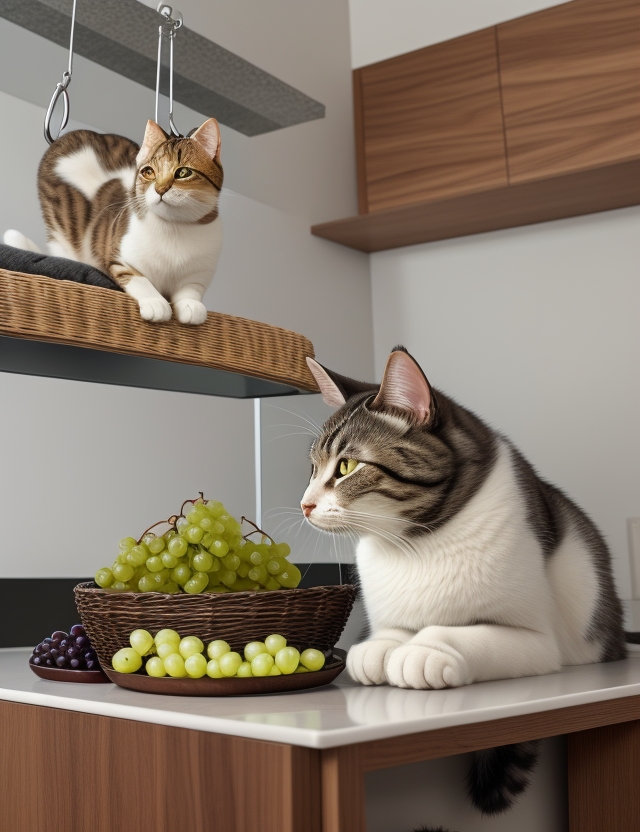When it comes to sharing snacks with your feline friend, it’s essential to understand which foods are safe and which can pose health risks. Grapes, while popular and nutritious for humans, are not a safe option for cats.
Are Grapes Toxic to Cats?
While the effects of grapes on cats are not as well-documented as they are for dogs, it’s better to err on the side of caution. In dogs, grapes and raisins are known to cause acute kidney failure, even in small amounts. Although there is no conclusive evidence of similar toxicity in cats, their sensitive systems suggest they should avoid this fruit altogether.
Potential Risks of Grapes for Cats
- Unknown Toxins
The exact substance in grapes that causes toxicity is still unidentified. However, the possibility of adverse reactions in cats, similar to those in dogs, cannot be ruled out. - Digestive Issues
Cats are obligate carnivores, meaning their diet is primarily meat-based. Foods like grapes may cause gastrointestinal upset, including vomiting or diarrhea. - Choking Hazard
Grapes, especially whole ones, pose a choking risk for cats, particularly for smaller breeds or kittens.
Symptoms of Grape Toxicity
If your cat accidentally ingests grapes, monitor for the following symptoms:
- Vomiting or diarrhea
- Lethargy or weakness
- Decreased appetite
- Signs of kidney distress, such as increased thirst or urination
If any of these symptoms occur, seek veterinary assistance immediately.
Safe Treat Alternatives for Cats
If you’re looking for safe and healthy treats to share with your cat, consider:
- Cooked Meat: Chicken or turkey (unseasoned and boneless).
- Catnip or Cat Grass: These are safe and enjoyable for most cats.
- Small Amounts of Fruit: Blueberries or peeled apples can be offered in moderation.
Always introduce new foods gradually and consult your veterinarian if you’re unsure about their safety.
Conclusion
While there’s no definitive proof that grapes are toxic to cats, the risks outweigh any potential benefits. It’s best to keep grapes out of your cat’s reach and focus on offering safe, species-appropriate treats instead. Ensuring your feline companion’s health and well-being starts with informed decisions about their diet.

